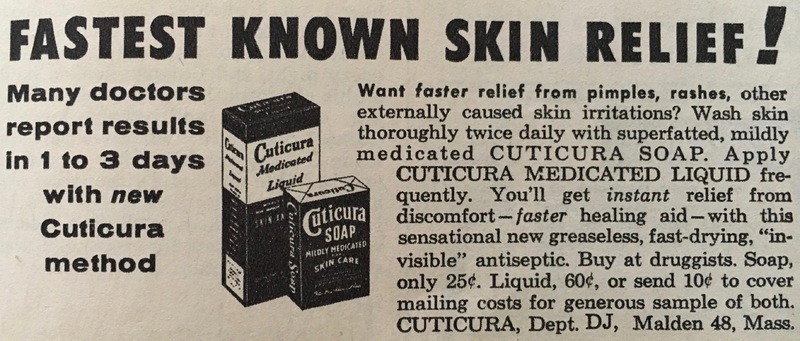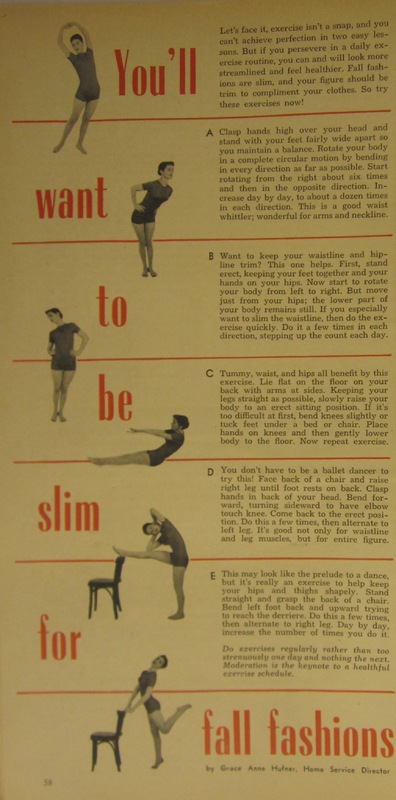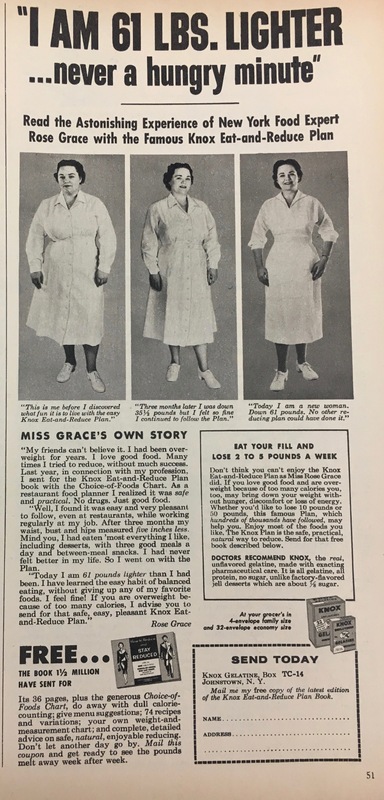The Falsity Behind Ads Promoting Self-Agency
To add a bit of complexity to the argument, I want to call foward three advertisements that seem to promote self-agency in women. We have an advertisement for Cuticura soap and medicated face wash, a "how-to" guide for women to lose weight, and an advertisement for a catalog of foods that will help women lose weight. All of these advertisements suggest that by following a certain protocol, women can comfortably achieve better health and more comfort for their bodies. These ads do not reference the attention of men as the main goal. Rather, they "encourage" women to take control of their bodies for their own benefit.
But what if we take a look at where these advertisements are located within the structure of the entire publication? These advertisements exist on the periphery of the pages. They are not the main focus of any page; that space is reserved for the heteronormative, patriarchal narratives. These advertisements do not draw attention to themselves, nor do they capture our attention with any type of glamour.
Therefore, although these advertisements may seem to promote female self-agency, they cannot based on their position within the larger publication. These advertisements are overshadowed by the ideals set forth by the narratives and the advertisements with the most airtime, those that position women's agency only in regard to men.
In other words, this is not a matter of content but rather a matter of position. Had these advertisements been the first thing a consumer sees when she opens the front cover, they might have a different effect. But based on where they fall within this edition of True Confessions (on the periphery of the romantic narratives), they are simply something to glance over or ignore. The magazine makes it easy for women to ignore the advertisements that to some extent tell them to take ownership of their own bodies.
With this structure, it becomes clear that True Confessions has an agenda: to coerce women into believing that in order to find happiness, they must find love; and in order to find love, they must cede the power they hold over themselves to a man. According to True Confessions, women can only express agency if that agency is directed toward seducing a man.


